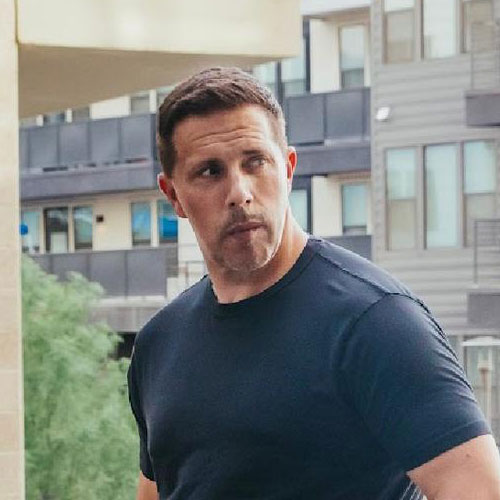The Wisdom Revolution
In the digital age, AI has made knowledge abundant, forcing leaders into the Wisdom Revolution.
Our brains are the most powerful computer ever created. It’s unlikely that a computer will be able to replicate wisdom, scientifically defined as the combination of social decision-making, emotional regulation, prosocial behaviors (empathy, compassion, etc.), self-reflection, acceptance of uncertainty, decisiveness, and spirituality. New evidence suggests that wisdom is linked to better overall health, well-being, happiness, life satisfaction, and resilience.
As we enter the Wisdom Revolution—the next stage in human history that will redefine how we live, work, and lead— and as technology and humans further merge, wisdom will likely be the only thing that separates us from the machines. Wisdom will be the difference between disrupting or being disrupted.
I coined the term Rhodium Rule to exemplify a new model of leadership. We’re all familiar with the Golden Rule (“Treat others the way you want to be treated.”) and the Platinum Rule (“Treat others the way they want to be treated.”); the Rhodium Rule encourages one to consider the entire ecosystem. Rhodium is the most valuable and rarest metal on Earth, underscoring its importance.
Every decision you make will forever alter the future and everything around you. Even indecisions are a decision, and if not taken seriously, our choices can have massive intended and unintended consequences.
“Grant me the serenity to accept the things I can not change, the courage to change the things I can, and the wisdom to know the difference.”
Yes, grant us the serenity to accept the things we can not change. However, this is where the Serenity Prayer only gets it half right: While things may be out of our immediate circle of control, we can still, in fact, change them by removing them from our world or influencing them. That which we don’t control falls into the next circle, our circle of influence. Everything that seems out of our control is still something we can influence or impact.
You can change anything—your world is your point of view, your perception is your reality.
“You do not see the world as it is. You see it as you are.” –Anais Nin
At the Change Agents Academy, we create those with the ability to transform themselves by using this new take on change through wisdom. By understanding what we control, influence, and inevitably impact, Change Agents transform themselves, the people around them, communities, and companies.
Here’s what we can control:
- Our Thoughts And Environment: What you think is what you get; we are always right.
- Our Habits and Purpose: How we spend our days is how we spend our lives.
- Our Stories And Self-Talk: It’s not what happened to us, it’s our response and what we tell ourselves and the rest of the world.
- Our Focus and Energy: We choose the obstacles and opportunities we want to conquer, and what we resist persists.
We are all part of a larger ecosystem. Whether we admit it to ourselves or not, our focus radiates energy throughout our ecosystem. We influence everything and everyone around us. When we influence others, they go to work on our influence, and then we’ve created a network effect.
Let’s reverse-engineer this. We often say teachers or parents had the greatest impact on our lives. Well, that’s because they influenced us—they altered how we approached what is in our circle of control. Our circle of control creates how we see the world. It creates how we influence it and how we impact it. Thoughts, habits, stories, and focus are the entire building blocks of our reality. This is what wisdom is.
Wise leaders are the only leaders who can succeed in the knowledge-abundant world. Wise leaders are intentional with their thoughts. Wise leaders are deliberate with their habits. Wise leaders have rewritten their past and now focus on the future they want to create.
I encourage my clients to think about the entire ecosystem in an exercise I call Futurist, where we break down all the probable and preferred scenarios. We first identify our preferred future (best-case scenario) and our probable future (if nothing changes, what will happen?). Then, we identify what self-disruptions we need to undertake to move from the probable future to the preferred future. These are the obstacles we can create to course-correct our clients and the opportunities we can focus on to get where we want our story to go. Our thoughts and our habits are how we tackle these obstacles and seize the opportunities before us.
Use these three questions to be a wise leader for your company, your team, your family, and yourself:
- Who does this decision impact?
- How will I pivot to create my preferred future?
- How does this decision serve my entire ecosystem?
When you ask yourself these three questions, you force yourself to think longer term, consider the intentional or unintentional influence, and more deeply understand the impact of each decision. For example, the Iroquois people have a leadership principle of considering the next seven generations with each decision they make. Wise organizations save seats and give voice in their meetings for others in their ecosystem, such as the customer, supply chain, and the environment.
When leaders think bigger, they become more conscious. When we use the Rhodium Rule and think about the entire ecosystem, we become wiser. The future of organizations that think on this level will disrupt instead of becoming disrupted.

Aaron Bare is a Wall Street Journal, USA Today, and #1 Amazon Bestselling Author of Exponential Theory, Founder of the Change Agents Academy, and IAF Endorsed Facilitator.


